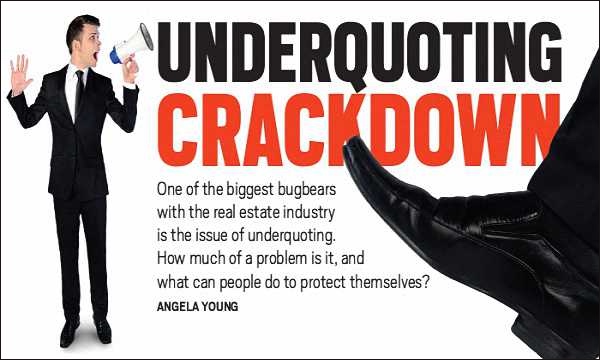.

UNDERQUOTING can take place whenever a real estate agent misleads a potential buyer about the likely selling price of a property – be it for commercial or residential real estate.
For example: When a property is promoted at a price that is lower than its estimated selling price, the seller’s asking price or at a price that the seller has already rejected.
What are the Changes and When do they Come into Effect?
In Victoria the State Government has introduced major reforms to the Estate Agents Act 1980 which came into force on 1 May 2017. The changes are aimed towards making the guidance and indicative selling price range (expressed to the buying public and vendors by real estate sales agents) reasonable, comparable and not misleading or deceptive.
Key aspect of the reforms include new requirements for how estate agents estimate and advertise selling prices, and ensure prospective purchasers are given information about the most comparable property sales. Also introducing significant fines and loss of sales commissions and other fees, where agents are found guilty of underquoting.
Therefore, agents must give an accurate opinion of the market price of the property. And advertising properties with a ‘plus’ or ‘offers over’ will be banned.
Agents must use a single figure or a range that must be within a 10% spread. If a higher offer than the advertised price is rejected by the seller at any time (or the seller advises the agent that they will sell for a higher amount than the advertised price) then the agent must change the advertised price to reflect this within one business day.
If a seller does not advise the agent of their selling price (eg: the reserve price), the agent must not advertise the property for a price that is less than the agent’s estimated selling price – which must be based on their experience and knowledge of the market.
Finally, agents will be required to provide buyers with a factsheet that shows comparable sales, median prices for the relevant suburb and the agents estimated selling price. Consumer Affairs Victoria will have the ability to enforce the new reforms and ensure compliance.
The changes have broad support including that of Consumer Affairs Victorian and the Real Estate Institute of Victoria.
How will the Changes Impact Commercial Property Investors?
Whilst the above reforms only apply to Victorian residential property sales at the moment … agents selling commercial property must not breach the false and misleading representation provisions of the Australian Consumer Law.
As a commercial property investor, it is important to always remember that an agent’s obligation will remain to the seller first.
However, the new reforms will place further pressure on agents to ensure that all properties are promoted at their expected selling price, or within 10% of that price.
Bottom Line: Ultimately, the intention is to create a more transparent market place. And this can only help protect all types of property investment.
Disclaimer: If you think a similar situation may apply to you, then you should contact us for detailed legal advice relating to the particular facts and circumstances of your property or lease agreement. This article is not intended to provide such detailed and specific advice. And, you should not act on the basis of any matter contained in this article without first obtaining more comprehensive professional advice.













Speak Your Mind